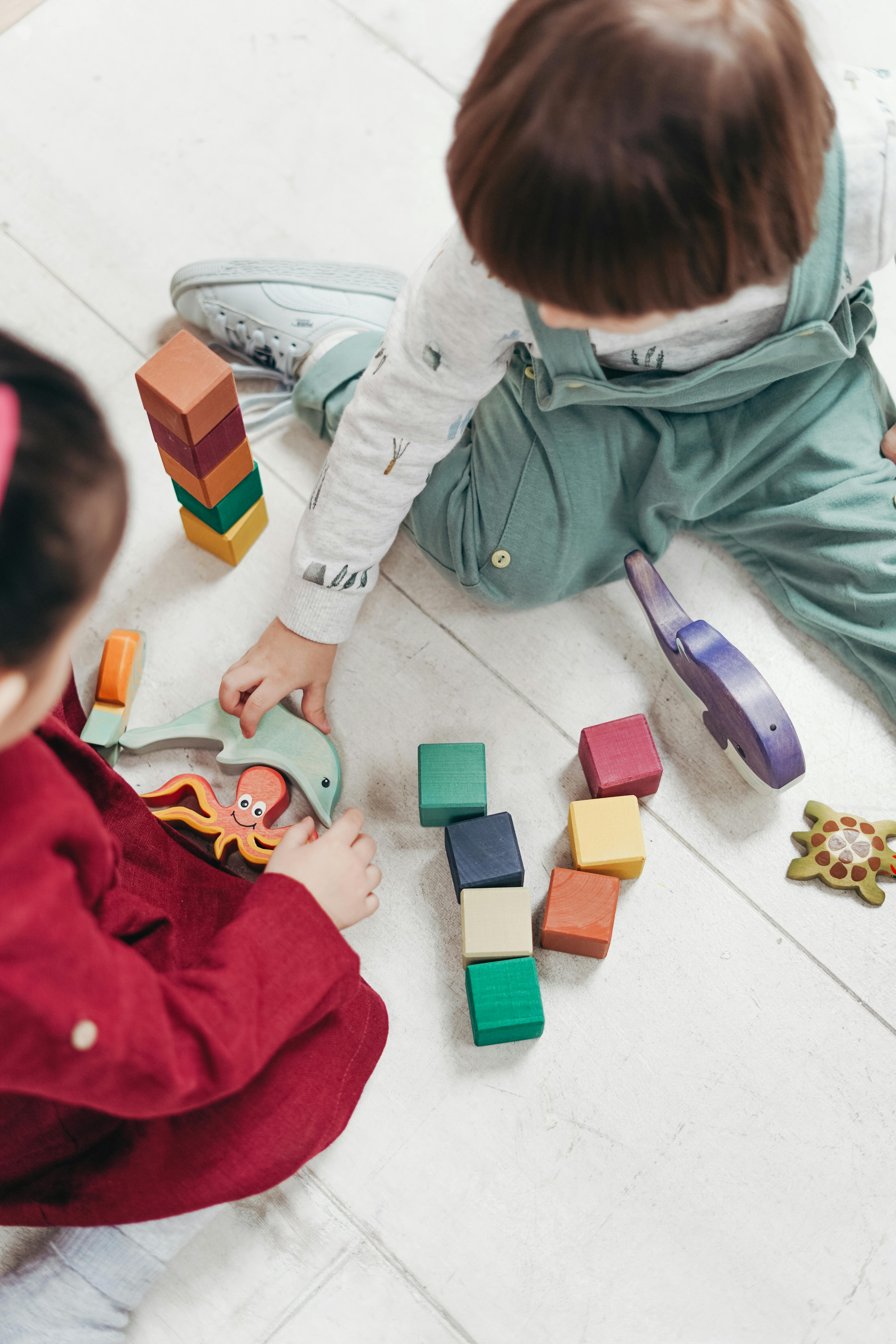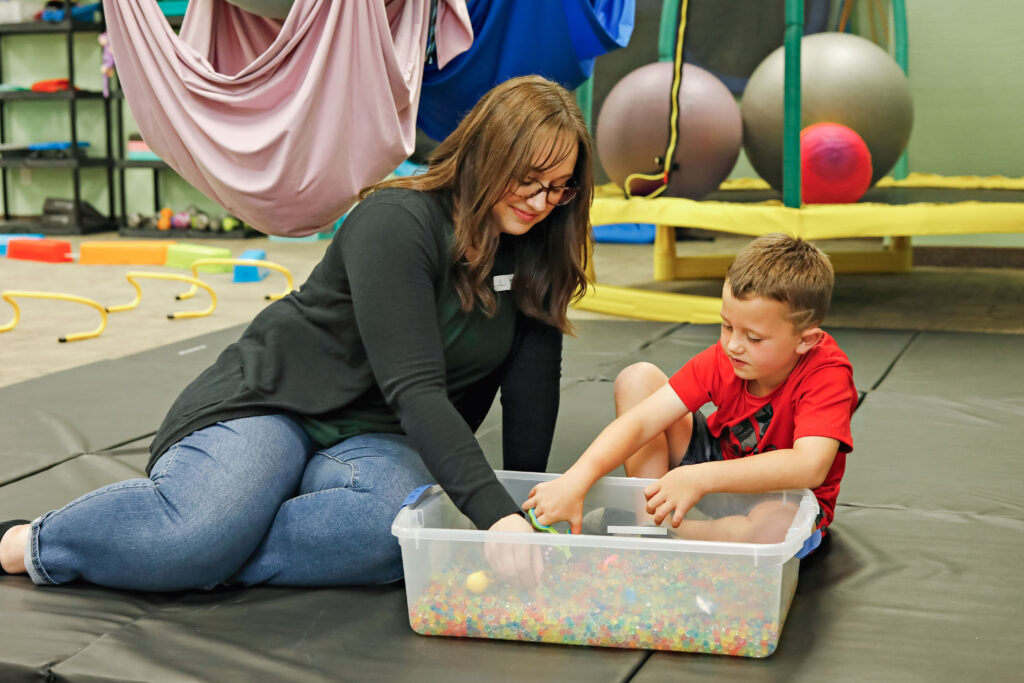
Understanding Occupational Therapy for Toddlers: A Guide for Parents and Caregivers
Occupational therapy (OT) is a valuable resource for children, including toddlers, who may face challenges in developing the skills needed for everyday activities. While most people associate OT with adults recovering from injury or illness, it plays an important role in helping toddlers build the foundational skills they need for daily life.
In our previous blog post, we discussed how occupational therapy can benefit infants. In this blog post, we’ll break down what occupational therapy is, how it helps toddlers, and when you might consider seeking it for your child.
What Is Occupational Therapy for Toddlers?
Occupational therapy is a form of therapy that focuses on helping individuals participate in meaningful activities or “occupations” of daily life. For toddlers, this includes everything from feeding themselves to playing with others and developing social skills. OT for toddlers is designed to support their development in areas like fine motor skills, sensory processing, self-regulation, and more.
Key Areas Occupational Therapy Helps Toddlers With
- Fine Motor Skills
- Toddlers need to develop the ability to manipulate objects with their hands, such as grasping, holding, and using utensils or crayons. Occupational therapists work with toddlers to improve hand-eye coordination, grip strength, and finger dexterity, which are essential for tasks like dressing, eating, and playing.
- Sensory Processing
- Toddlers are still learning how to process sensory input—sounds, sights, textures, and tastes. Some children may be overly sensitive to certain sensory stimuli (like bright lights or loud noises), while others may seek out more intense sensory experiences. OT helps children develop the ability to regulate their responses to these sensory experiences, which can enhance their comfort and behavior.
- Self-Care Skills
- As toddlers grow, they begin learning essential self-care tasks like dressing, feeding, and brushing their teeth. An occupational therapist can help your child develop the skills they need to become more independent in these areas. They might focus on simple tasks like holding a spoon or putting on a shirt, gradually building up to more complex activities.
- Gross Motor Skills
- OT also supports large motor skill development, including things like crawling, walking, running, and climbing. Toddlers need to develop strength and coordination to safely navigate their environment. Occupational therapists might engage them in playful activities that challenge their balance, posture, and movement skills.
- Social and Play Skills
- Play is an essential part of a toddler’s development. It teaches them communication, social interaction, and problem-solving. An OT can guide toddlers through activities that foster these skills, helping them learn how to take turns, share, or engage in group play.
How Occupational Therapy Can Help a Toddler
Occupational therapy can be beneficial for toddlers who face developmental delays, sensory issues, or challenges with physical coordination. Common signs that a toddler may benefit from OT include:
- Difficulty with hand-eye coordination (e.g., struggling to stack blocks or complete puzzles)
- Delays in motor skills like walking or running
- Sensory sensitivities (e.g., extreme reactions to certain textures or sounds)
- Struggling with self-care tasks like feeding themselves or putting on clothes
- Limited play skills or difficulty interacting with peers
- Poor self-regulation (increased meltdowns lasting for an irregular period of time)
OT isn’t just for children with developmental concerns; it can also support typically developing toddlers by enhancing their skills and giving them the tools to navigate their world with greater ease.
When to Consider Occupational Therapy for Your Toddler
As a parent or caregiver, you may notice certain signs that could suggest your toddler would benefit from OT. These might include:
- Difficulty feeding themselves, using utensils, or drinking from a cup
- Trouble with dressing or undressing (e.g., difficulty with buttons, zippers, or putting on shoes)
- Difficulty with tasks requiring small muscle movements, such as drawing, cutting, or stacking objects
- Extreme reactions to textures, sounds, or smells
- Challenges with gross motor skills like balance or coordination
- Difficulty engaging in age-appropriate play or interacting with others
If any of these challenges sound familiar, it may be a good idea to consult with a pediatrician or occupational therapist for an evaluation.
What Happens During an Occupational Therapy Session?
In an OT session for toddlers, the therapist will engage your child in activities that are fun and motivating, yet purposeful in promoting skill development. These activities might include:
- Sensory activities like playing with textured toys, sand, or water to help the child regulate sensory input.
- Fine motor tasks like squeezing playdough, stacking blocks, or practicing with buttons and zippers.
- Gross motor activities like jumping, running, building obstacle courses, playing on climbing structures to improve coordination and strength.
- Social play through games that encourage turn-taking, sharing, or following simple directions.
All in All …..
Occupational therapy is an incredibly beneficial tool in supporting toddlers’ development and helping them build the skills needed for daily life. Whether your toddler is facing challenges or simply needs extra help reaching developmental milestones, OT provides individualized support in a fun and engaging way.
If you’re concerned about your child’s development or notice that they may need extra help in certain areas, it’s never too early to explore the potential benefits of occupational therapy. Early intervention can lead to stronger foundations and a smoother transition into the later stages of childhood.
Let your toddler’s journey towards independence be guided with love, patience, and the support they need to thrive!
Contact our office today at 406-647-0042 to get your child started!






No comment yet, add your voice below!